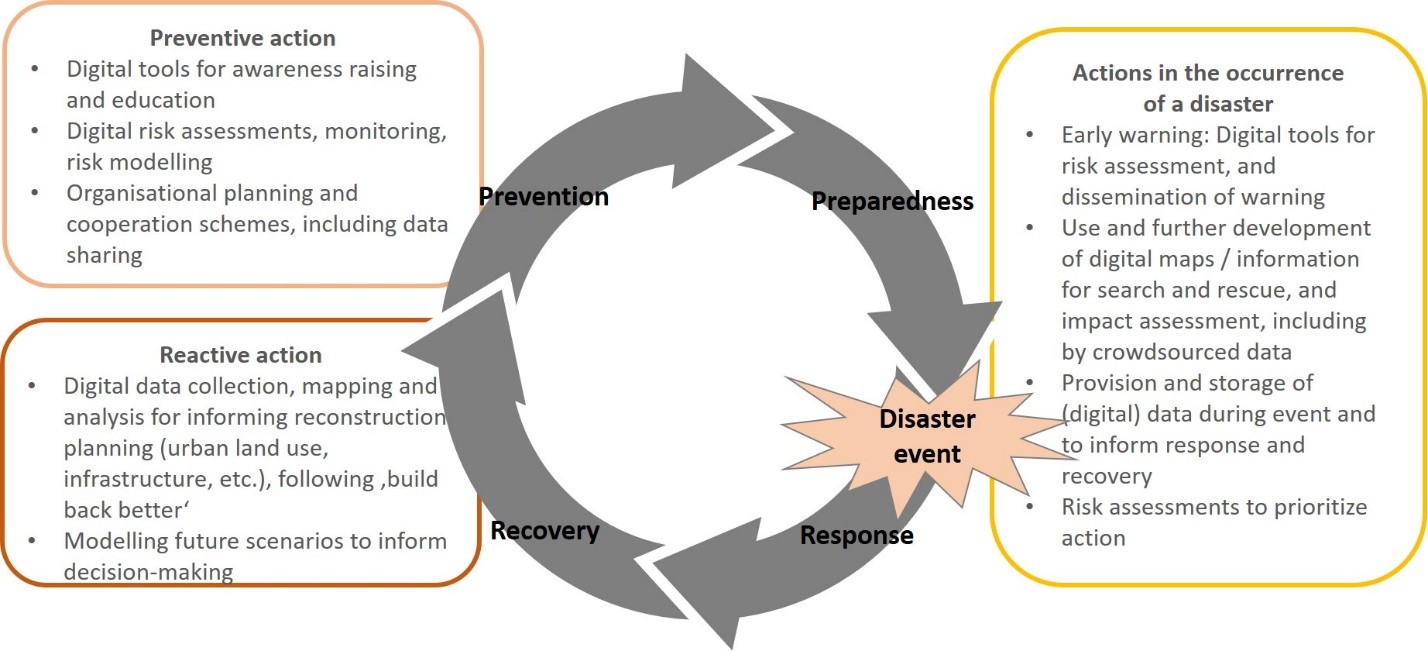Digital solutions to enhance urban climate resilience
Digital Solutions in the context of building urban (climate) resilience comprise devices, infrastructure and programs for digitally processing, storing and/or transferring information (German Federal Ministry for Economic Cooperation and Development 2019, IPCC 2022). They can contribute to more efficient urban management by bearing the potential of integrating urban systems components and related data. This shift towards digital solutions has accelerated in recent years as they become more widely available and affordable (Arup & Resilient Cities Network 2023). The widespread implementation of digital solutions can unlock the transformative potentials of cities, as it can enhance government efficiency, foster sectoral innovation as well as economic development and empower communities through digital inclusion (Salehi et al. 2023).
Concretely, digital technologies can strengthen urban functionalities and processes (Pritchard et al. 2023). For example, they can provide better climate data and access to it, to adapt cities to current and future climate change impacts. Thereby, digital solutions can support livelihoods and well-being of urban citizens.
In cities, the implementation of digital technologies is often summarized as smart city - which can be defined as a place where networks and services are made more efficient with the use of digital solutions, supporting citizens, environment and economic development (Karatzimas 2024). In the context of climate action it can be called climate smart city (NIUA 2022). However, which technologies are implemented exactly is not prescribed but depends on the city and the context.
In general, digital solutions can support the adaptation to different climatic hazards, across all phases of the disaster risk cycle (UNDRR 2024). Each of the phases needs different actions, with different timeframes and related actors, as described in below figure. Digital solutions however come with the potential to bridge between phases and align action, for example by establishing one data platform, a cross-sectoral monitoring system or by digital modelling of adaptation plans (Zuccaro & Leone 2021).

Different digital solutions can be useful across the stages of the disaster management cycle.
Further readings
- Resilient Cities Network 2022: Digital Solutions for Urban Resilience in Latin America
- Salehi et al. (2023)/ICLEI: Digitalization: A Game Changer for Local Governments & Communities
- UN Habitat 2024:Cities and Climate Action – World Cities Report 2024
Licence

This work is licensed under a Creative Commons Attribution-NonCommercial-ShareAlike 4.0 International License (CC BY-NC-SA 4.0).